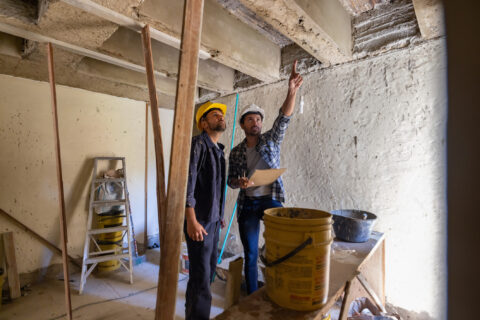In a pandemic that has tragically taken the lives of more than 300,000 Americans and cost millions of others their jobs and livelihoods, the numbers can be numbing.
Amid these staggering statistics, local governments and water utilities have shared in the devastating impacts that this crisis has had on our customers. With the pandemic taking away people’s livelihoods, families are struggling to pay their water bills, and the result has left gaping budget holes for agencies across the country.
In Louisville, 18,000 accounts are currently delinquent, an 18-fold increase compared to before the pandemic. In Maryland, the Washington Suburban Sanitary Commission is facing up to $60 million in unpaid bills from customers in their two-county territory. The San Francisco Public Utilities Commission has over 5,700 residential and commercial customers behind in their bills, more than twice the total at this time last year. Overall, there is an estimated nationwide $5.5 billion annual loss in revenue due to the cost of suspending shut offs and increased delinquencies.
Here in Milwaukee, more than 18,000 customers have been unable to pay their bill for water and sewer service, putting a strain on our already struggling budget due to pandemic-related revenue loss. Customers have been unable to make ends meet, even though our service rates have been historically lower than those in other municipalities. The combined effect of keeping water service rates low and lost revenues result in habitual budget strains for Milwaukee Water Works, requiring us to push back essential maintenance operations and defer much-need capital infrastructure projects.
The city’s ability to hire and retain employees has been badly hampered as well, as many are increasingly choosing more lucrative salaries in the private sector. As we work to ensure equity and diversity in our workforce, the barriers that restrict access to living-wage employment in Milwaukee’s water sector become more urgent to address. I am proud to be part of the Milwaukee Water Equity Taskforce to expand workforce opportunities in the water sector.
Mindful of the economic pain that everyone is facing, water utilities nationally have offered bill discounts, moratoriums on shutoffs due to late payments, and other programs aimed at easing the financial burden of our customers most in need. In Wisconsin, the Public Service Commission, which oversees utility rate structures, prohibited shut offs for nonpayment and suspended application of late fees to customers’ bills. While Milwaukee has been able to sustain a policy of not shutting off water service for nonpayment, we have been greatly impacted by revenue reductions. Generally, programs in response to the pandemic are unsustainable and lack consistency in economic and regulatory viability nationwide.
Sadly, there are few feasible local resources available for residents who are struggling to pay their water and wastewater bills. While some operators provide low-income assistance programs, these plans are limited both by budgetary and legal means. In states like California and Mississippi, local utilities are prohibited from using ratepayer revenue to fund such programs, while legal barriers in many other states result in similar restrictions.

Water utilities are expensive to run, and with local operators scrambling to fill the financial gap left by non-payments, the situation is only growing more pronounced. Help from the federal government has dwindled over the years, with the federal cost-share for water infrastructure dropping to below five percent, which is significantly lower than other critical infrastructure sectors. Local ratepayers are left to make up the difference.
The COVID-19 pandemic has highlighted just how perilous the fiscal straits are for our cities, towns and villages – and their local water utilities. We need a solution now—one that can mitigate the financial burden of debt for our customers while also providing stable, long-term funding sources for America’s water utilities.
The Federal CARES Act prohibited the use of funds to offset lost utility revenues, so funds could not be used to forgive customer debt accrued during the pandemic. In the instances where federal dollars were made widely available, local governments often used those sources to shore up public transit, housing and healthcare programs. Under ownership of the city of Milwaukee, the Water Works was able to use funding to purchase necessary supplies to keep our employees safe, but had no funding to offset revenue loss that will directly impact rates to our customers.
The U.S. House of Representatives included $1.5 billion to establish a water utility low income assistance program in the HEROES Act but that funding has yet to materialize in any Senate bill, leaving its fate deeply uncertain. Federal programs have long existed to assist low-income households with food, heating and energy but not for water, the most basic need for human life, public health and public safety. We know that our low-income customers pay a disproportionate amount of their income toward their water bill.
For years, water utilities have been raising the alarm about affordability issues facing our customers. The COVID-19 pandemic has only heightened those concerns. Hundreds of thousands of families throughout America are one missed paycheck away from financial destitution.
As Congress grapples with a global health and economic crisis that is sure to worsen before it improves, federal leaders are once again cobbling together a comprehensive stimulus package that could provide some form of salvation over these coming months. It is absolutely imperative that we find a solution, before the current situation at our nation’s water utilities devolves into a crisis.
No one should have to choose between paying their water bill and putting food on the table for their family. With real federal financial support for our nation’s water utilities, we can help avoid that terrible choice facing America’s families.
In November, Milwaukee Alderwoman Chantia Lewis spoke at NLC’s City Summit on equity through workforce development in the water sector. If you registered for NLC’s City Summit, the recorded workshop, “Making Water a Force for Equity and Opportunity: Affordability and Beyond,” is available through Jan. 31, 2021. If you didn’t attend City Summit, NLC has an On Demand pass available where you can access all recordings, learn more here: citysummit.nlc.org.










